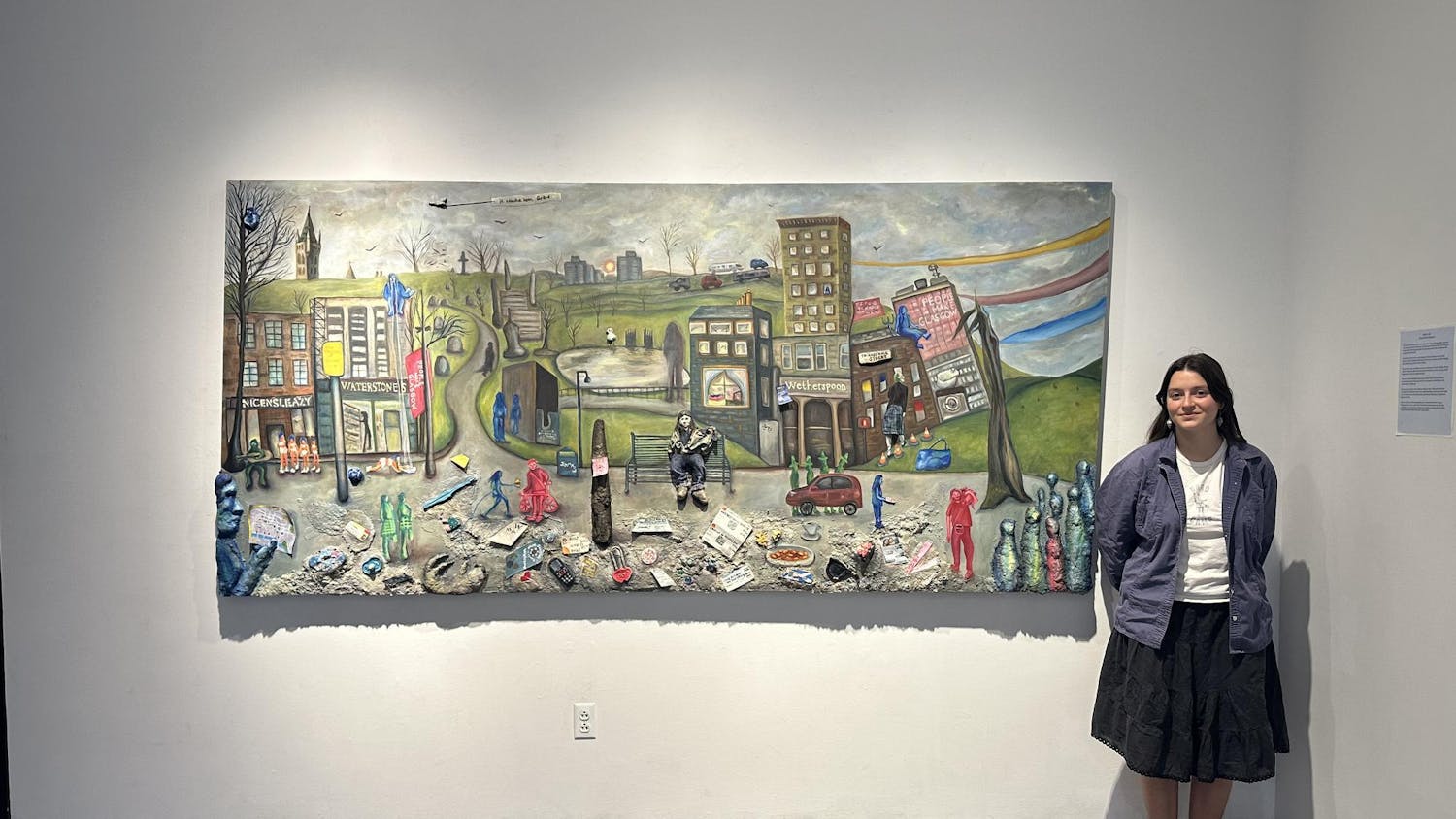Akinwande Oluwole “Wole” Soyinka — Nigerian playwright, professor and cultural critic — has been as prolific politically as he has been creatively. In 1986, the Swedish Academy awarded him the Nobel Prize in Literature for his work, which “in a wide cultural perspective and with poetic overtones fashions the drama of existence,” according to a Nobel Media press release. He was the first African to receive this accolade.
In his lecture Monday, entitled “Hatched From the Egg of Impunity: A Fowl Called Boko Haram,” Soyinka discussed the rise of Boko Haram, a terrorist organization whose acts of violence have ravaged Nigeria in recent years. He recently spoke with The Herald about the distinctions between progress and tradition, change and stability.
Herald: Looking back on the body of work you’ve produced over the decades, to what extent would you say your writing has evolved to reflect the changing political landscape you witnessed in Nigeria?
Soyinka: Not much. Fortunately, I have not merely reflected but anticipated. The “increasing acerbity” — that’s a quote from someone, and probably justified — observable in such writings is perhaps a response to the worsening of one’s political environment. The language with which one deals with Boko Haram cannot but be vastly different from that of, shall we say, electoral manipulation.
In many of your plays, you’ve used satire as a means to air your grievances against the government and society. Is there a reason you attacked these issues with that particular literary weapon?
I have no grievances against any government. The government betrays the governed, and I merely respond as appropriate. Satire is suitable for some acts of misgovernance. Other times, the pen of satire gets blunted and other forms from the polemical to the excommunicating. Indeed, one longs for those comparative misdemeanors for which satire is a relief.
Elements of mythology — most notably Greek and Yoruba — also appear in your work. I was wondering if you could tell me about the dialogue you perceive between these traditions and the contemporary problems of progress you write about.
Greek mythology and the Yoruba descended from some ancient but profound contact, I often suggest. The affinities are startling. But then, all mythologies sprang from one impulse: the human need for explication of the mysterious in palpable terms. Contemplation of any aspect of the universe is the only provocation required to trigger a new mythology. If I deploy mythology in relation to contemporary problems of progress, it is only because progress itself is embedded in archetypes, and those provide you a preset template by which even novelty can be captured.
There have been times when your political agenda has placed you in great personal peril. You’ve spent time in solitary confinement and in exile. You’ve been sentenced to death in absentia. How did you respond to this punitive backlash?
You’ve heard the expression, I’m sure, that goes: “If you sentence me in absentia, then execute me in absentia.” My responsibility is then to oblige by keeping in absentia. My writing, however, was never placed on trial or sentenced to death, so that continues with normal existence. No changes I’m aware of.
It could be argued that you and the late Chinua Achebe, who was a professor of Africana studies here at Brown, have been two of Nigeria’s most dominant literary figures. Recent years have also seen the rise of younger writers like Chimimanda Ngozi Adichie, Ben Okri and Uwen Akpam. In what ways do you see these emerging voices as a continuation of — or departure from — your conception of Nigerian literary tradition?
Continuation of, departure from, even critique of the differences are not really generational. Society evolves. New themes are provoked into being. Experimentations take different forms, but most of the time it has nothing to do with generational differences. Regarding Nigerian literary tradition — that remains a contentious theme.
ADVERTISEMENT




